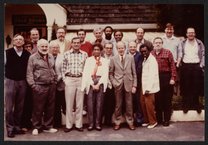Guilielmi Harvei doct. & profess. Regii Exercitatio Anatomica De Motu Cordis & Sanguinis
Exercitatio anatomica de motu cordis et sanguinis
An anatomical essay on the movement of the heart and blood
- 1648

Rights
Download all 6 images
PDFZIPof full-sized JPGsDownload selected image
Small JPG1200 x 1757px — 620 KBFull-sized JPG1996 x 2922px — 1.4 MBOriginal fileTIFF — 1996 x 2922px — 16.7 MBWilliam Harvey (1578-1657) was an English physician who discovered the circulation of the blood. He correctly described the motion of the heart as a contraction that forced blood out of the left ventricle into the arteries and the return of the blood through the venous system to the right atrium, as well as the pulmonary circulation of blood from the right ventricle through the lungs to the left atrium. This work, first published in 1628, is commonly referred to as De Motu Cordis, or On the Motion of the Heart. Harvey establishes the circulation of blood throughout the body through observations, experiments, and measurements.
Also bound in this volume are Dissertation de corde (Rotterdam, 1648) by Jacobi de Back (1594-1658), an early Dutch adherent of Harvey's, as well as the first edition of Harvey’s Exercitationes duae anatomicae de circulatione sanguinis (Rotterdamn, 1649), his first extended defense of his discoveries since their initial publication 21 years earlier. Title pages and plates have been digitized.
| Property | Value |
|---|---|
| Author | |
| Publisher | |
| Contributor | |
| Place of publication | |
| Format | |
| Genre | |
| Extent |
|
| Language | |
| Subject | |
| Rights | Public Domain Mark 1.0 |
| Credit line |
|
Institutional location
| Department | |
|---|---|
| Collection | |
| Physical container |
|
Related Items
Cite as
Harvey, William. Guilielmi Harvei Doct. & Profess. Regii Exercitatio Anatomica De Motu Cordis & Sanguinis. Rotterdam, Netherlands: Ex Officinâ Arnoldi Leers, 1648. https://digital.sciencehistory.org/works/gc0kwhc.
This citation is automatically generated and may contain errors.










